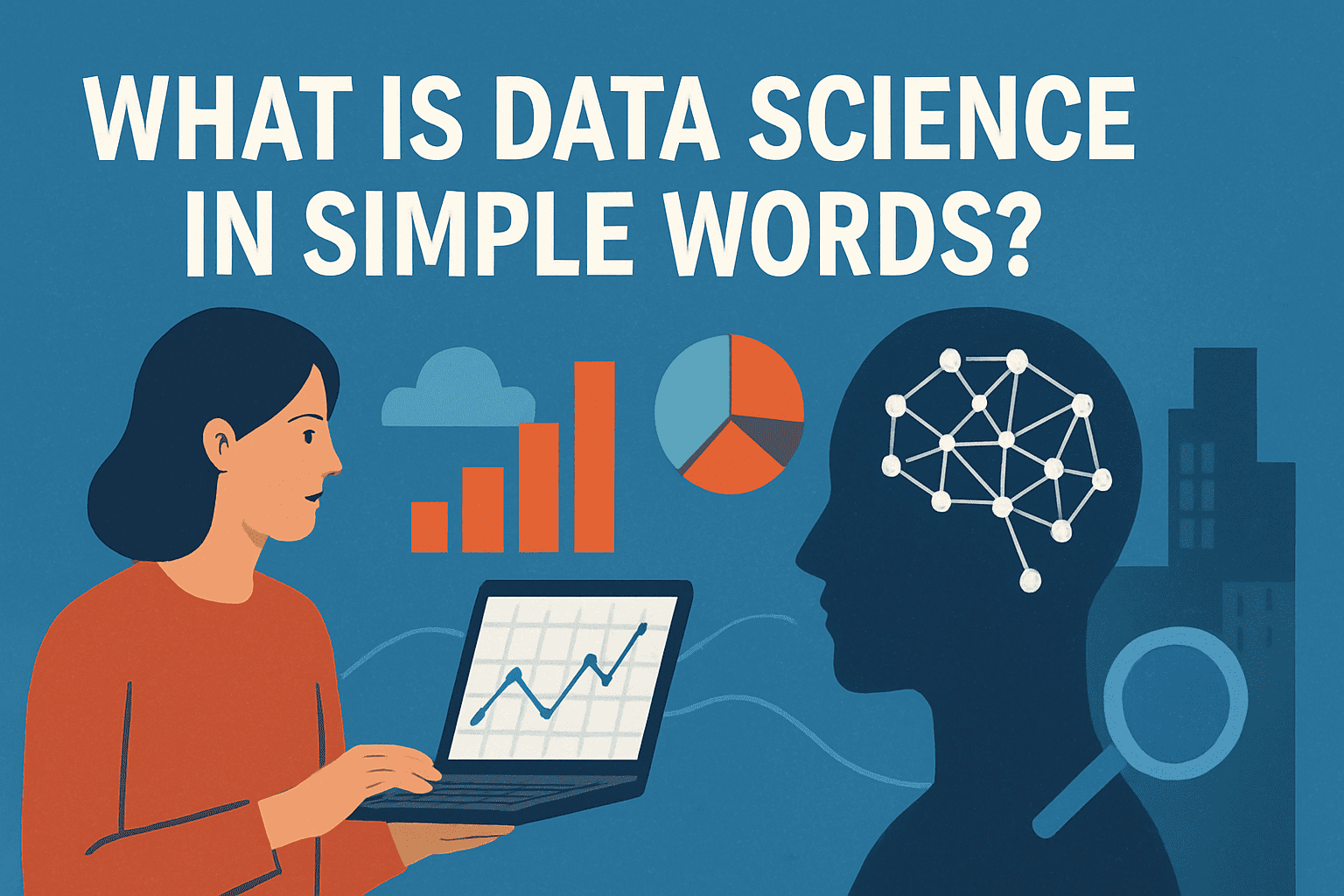Blog
What is Data Science in Simple Words?

Understanding Data Science: A Simple Overview
Data science has emerged as a vital field in today’s data-driven landscape. By combining various domains, including statistics, computer science, and domain expertise, data science enables organizations to make informed decisions based on data analysis. This blog post aims to demystify data science, explaining its fundamental concepts in straightforward language.
What is Data Science?
At its core, data science refers to the process of extracting valuable insights from raw data. It’s a multidisciplinary field that involves collecting, analyzing, and interpreting vast amounts of information. Data scientists leverage mathematical frameworks and statistical techniques alongside programming skills to derive meaningful conclusions from data sets.
The Importance of Data Science
In an age where data is considered the new oil, understanding data science is crucial for businesses. Organizations generate and collect data at an unprecedented rate. Data science helps convert this information into actionable insights, driving better decision-making, improving operational efficiency, and enhancing customer experiences.
Key Components of Data Science
To understand data science better, it’s essential to break it down into its main components:
1. Data Collection
The first step in the data science process is gathering the necessary data. This can come from various sources, including:
- Surveys: Collecting responses from individuals.
- Web Scraping: Extracting data from websites.
- Databases: Accessing structured data stored in relational databases.
2. Data Cleaning
Raw data is often messy and incomplete. Data cleaning involves filtering out noise and correcting inconsistencies. This step is crucial because high-quality data forms the foundation for accurate analysis.
3. Data Exploration
Before diving into the analysis, data scientists explore the data to understand its structure and underlying patterns. Exploratory data analysis (EDA) uses visualization techniques and statistical summaries to help identify trends, correlations, and anomalies.
4. Data Analysis
This is where the real magic happens. Data scientists apply various analytical techniques, ranging from basic statistical analyses to complex machine learning algorithms, to derive insights. The analysis phase aims to answer specific questions or test hypotheses based on the collected data.
5. Visualization
Effective visualization plays a vital role in data science. Graphs, charts, and interactive dashboards make complex information accessible and understandable. Data visualization not only aids in interpreting results but also facilitates clearer communication with stakeholders.
6. Decision Making
The end goal of data science is to assist organizations in making data-driven decisions. Insights derived from data analysis can inform product development, marketing strategies, operational improvements, and more.
The Role of a Data Scientist
Data scientists possess a unique skill set that combines analytical abilities with technical know-how. Their role involves:
- Problem Solving: Identifying business challenges and determining how data can solve them.
- Statistical Analysis: Utilizing statistical methods to analyze data and draw conclusions.
- Programming: Writing code in languages such as Python or R to automate data processes or run analyses.
- Communication: Presenting findings clearly to non-technical stakeholders to support business decisions.
Tools Used in Data Science
Several tools and technologies are commonly utilized in data science. Familiarity with the following tools can significantly boost a data scientist’s efficiency:
- Programming Languages: Python and R are the most widely used for data analysis and visualization.
- Database Management: SQL is essential for querying databases.
- Data Visualization Tools: Tools like Tableau and Power BI help visualize data insights.
- Machine Learning Libraries: Libraries such as TensorFlow and Scikit-learn are used to build predictive models.
Real-World Applications of Data Science
Data science has transformed numerous industries by providing insights that drive innovation and efficiency. Here are some notable applications:
1. Healthcare
In healthcare, data science enables predictive analytics, improving patient outcomes. It can identify risk factors, optimize treatment plans, and even streamline administrative processes.
2. Finance
In the finance sector, data science aids in fraud detection and risk management. By analyzing transaction data, organizations can quickly identify unusual patterns and minimize losses.
3. Marketing
Data science revolutionizes marketing strategies. By analyzing consumer behavior and preferences, businesses can create targeted marketing campaigns that increase engagement and conversion rates.
4. E-commerce
E-commerce platforms leverage data science to personalize shopping experiences. Algorithms analyze browsing and purchasing patterns to recommend products tailored to individual customer preferences.
Challenges in Data Science
While data science offers numerous benefits, practitioners also face several challenges. Some of the most common include:
- Data Quality: Ensuring the quality and completeness of data is a constant struggle. Poor-quality data can lead to misleading conclusions.
- Complexity of Algorithms: The complexity of advanced algorithms can be challenging, requiring continuous learning and adaptation.
- Ethical Considerations: Data privacy and ethical concerns are paramount. Data scientists must navigate regulations and ensure responsible data use.
The Future of Data Science
As technology continues to evolve, the future of data science looks promising. The increasing availability of data, advancements in machine learning, and improved tools for data analysis will drive growth in the field. Data science will likely expand into new areas, underscoring its relevance in solving complex problems across sectors.
Conclusion
Data science is a powerful field that enables organizations to harness the power of data effectively. By understanding its core components, tools, and applications, businesses can unlock valuable insights that drive growth and innovation. In an era where data reigns supreme, mastering data science is more critical than ever for achieving success in various industries.

